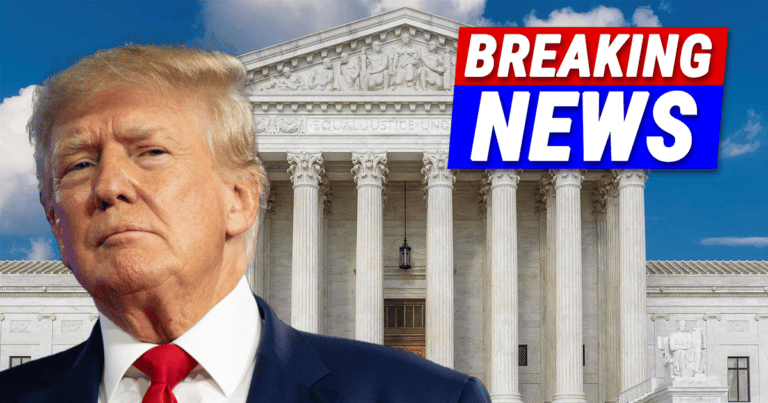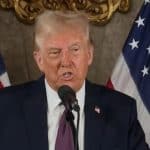
The foundational principles of American democracy face a pivotal moment as the nation’s highest court confronts an unprecedented constitutional question. At stake is not merely a legal proceeding, but the very nature of presidential authority and the separation of powers that has guided our republic for over two centuries.
The constitutional crisis emerges as the judicial system grapples with fundamental questions about presidential immunity and the proper bounds of state court authority over federal officials.
Let that sink in for a moment – a state court judge believes he can sentence a president-elect mere days before inauguration.
Trump’s Emergency Petition
In a dramatic development that underscores the gravity of the situation, President-elect Donald Trump filed an emergency petition with the Supreme Court Wednesday morning. In it, he’s seeking to block what his team describes as an “unlawful sentencing” in New York state court. The timing of this legal battle has raised serious concerns about judicial overreach and political motivation.
“President Trump’s legal team filed an emergency petition with the United States Supreme Court, asking the Court to correct the unjust actions by New York courts and stop the unlawful sentencing in the Manhattan D.A.’s Witch Hunt,” stated Trump spokesman and incoming White House communications director Steven Cheung, highlighting the constitutional stakes at play.
The Supreme Court’s intervention comes at a critical juncture. Indeed, Trump’s sentencing is scheduled for January 10th. This is mere days before his January 20th inauguration as the 47th President of the United States. The high court has ordered prosecutors to respond by Thursday morning, signaling the urgency of the constitutional questions at hand.
If you’re wondering how we got here, you’re not alone. Trump’s legal team argues forcefully that the case threatens both presidential authority and governmental operations.
“This court should enter an immediate stay of further proceedings in the New York trial court to prevent grave injustice and harm to the institution of the presidency and the operations of the federal government,” their filing states, emphasizing the broader implications for executive authority.
Constitutional Scholars, Legal Experts Concerned
The timing has raised significant concerns among constitutional scholars and conservative legal experts. Following the Supreme Court’s landmark July ruling establishing broad presidential immunity protections, serious questions emerge about whether a president-elect should face state-level prosecution during the crucial transition period.
Judge Juan Merchan’s decision to proceed with sentencing has drawn particular scrutiny from legal observers. While the judge has indicated he does not plan to impose jail time, the very act of scheduling sentencing days before the inauguration has sparked debate about the appropriate boundaries between state judicial authority and federal executive power.
The case represents more than just a legal proceeding. It also strikes at the heart of America’s constitutional framework. As Trump’s lawyers argue in their Supreme Court petition, the prosecution’s admission of evidence relating to official presidential acts directly contradicts the high court’s previous ruling on presidential immunity.
“The Supreme Court’s historic decision on Immunity, the Constitution, and established legal precedent mandate that this meritless hoax be immediately dismissed,” Cheung emphasized, pointing to the broader constitutional principles at stake.
Make no mistake – the American judicial system now faces a moment of truth. As the Supreme Court weighs this emergency petition, their decision will reverberate far beyond the immediate case, potentially establishing crucial precedents about presidential authority, state court jurisdiction, and the delicate balance of power that has sustained our republic.
For citizens who value constitutional integrity and proper judicial restraint, the coming days will prove critical. The Supreme Court’s response will not just determine the immediate future of this case – it will help shape the fundamental relationship between state courts and federal executive authority for generations to come.
Key Takeaways:
- State courts are attempting unprecedented control over presidential authority just days before Trump’s inauguration.
- Supreme Court’s previous immunity ruling clearly protects presidential and president-elect powers.
- Liberal judges are creating dangerous precedents that threaten constitutional separation of powers.
- Americans must remain vigilant as judicial activism threatens executive branch independence.
Sources: Fox News, NBC News, Reuters, NPR


